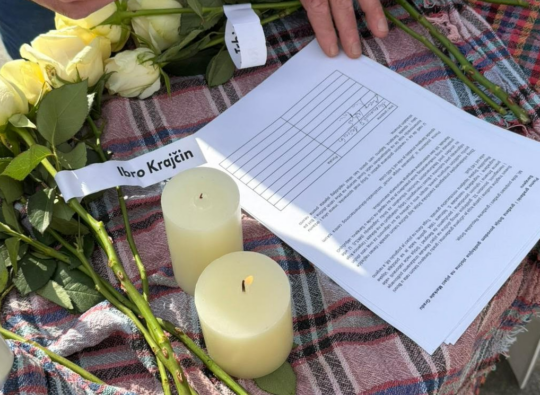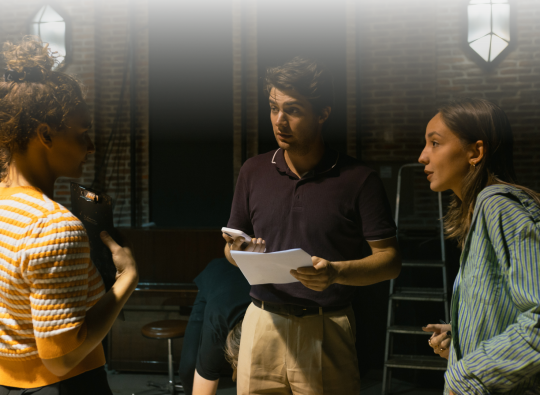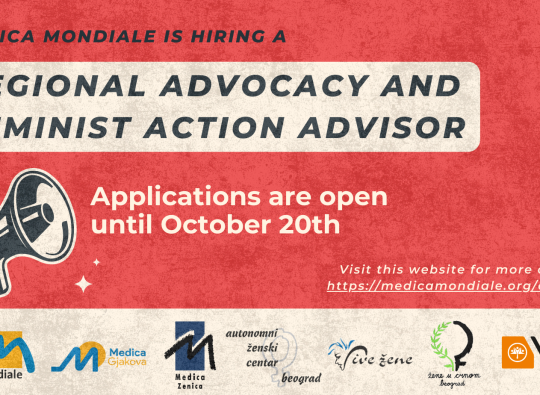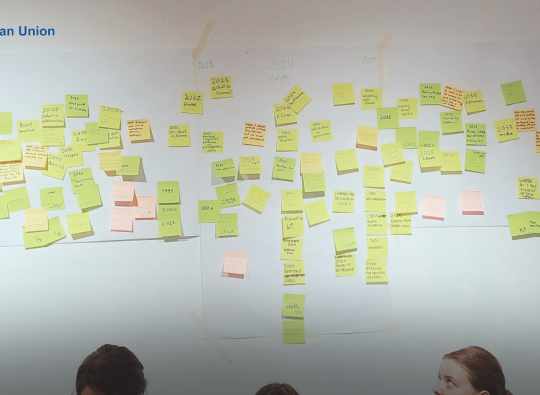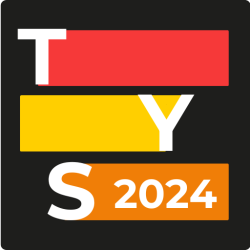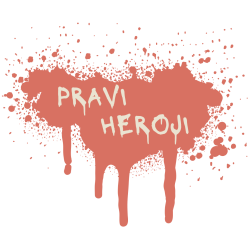The workshop sought to educate and inform young people from different parts of Serbia about the events and processes which preceded the insurgency in the Preševo Valley in 2000-2001 and what happened after that, as well as about the life of Albanian minority in the municipalities of Preševo, Bujanovac and Medveđa today. The workshop was attended by ten young people from Belgrade, Zrenjanin, Čačak and Novi Pazar, as well as from Preševo and Bujanovac. They had an opportunity to participate in the workshop session in their mother tongues, i.e. Albanian and Serbian.
The workshop began with the lecture by Belgzim Kamberi, director of the Bujanovac Human Rights Committee, who talked about the genesis of Albanian and Serbian national movements which subsequently participated in post-Yugoslav wars. Explaining also the historical background of building the national awareness of both Albanian and Serbian communities on the examples of the League of Prizren and the Battle of Kosovo, he talked of initially negative attitudes of communist authorities of both Albania and Yugoslavia towards local nationalisms with which both states would make compromises and pacts later on. In the end, Kamberi noticed that even today, in the process of accession to the European Union, dreams of national ethnic states are still present, instead of building the states on the principles of general citizenship.
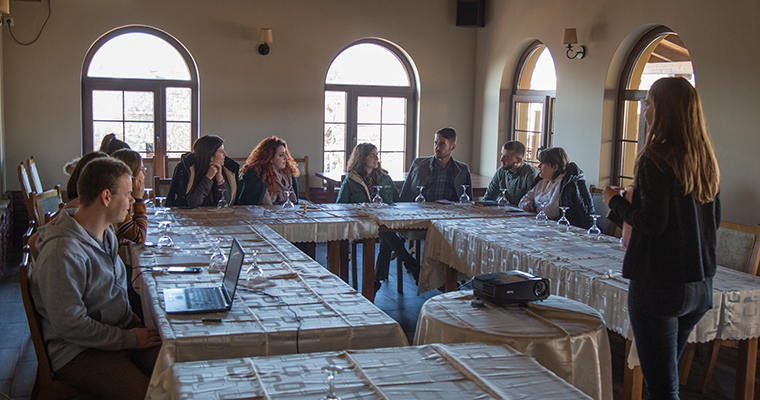
According to the Humanitarian Law Centre, during the NATO bombing, there were grave human rights violations and open repression by the paramilitary units, police and military in the territory of these three municipalities. On the territory of Preševo municipality alone, during the state of war in 1999, 11 Albanians were killed under unexplained circumstances. The cases of grave human rights violations (murders, abuse and robberies) in all three municipalities resembled those taking place in Kosovo at the same time. The harassment of the villagers of Veliki Trnovac on 31 March 1999, when, in addition to the searches of their homes, they were demanded to hand over “NATO commandos, KLA terrorists and narcotics” within two hours, is illustrative of the treatement by the military and police authorities during the state of war.
Let us remind you, in the course of 2000 and the first half of 2001, the territories of these three municipalities were the place of armed conflicts between the police and the Liberation Army of Preševo, Bujanovac and Medveđa (OVPMB). According to the Humanitarian Law Centre, OVPMB first appeared publicly in late January 2000, in the village of Dobrosin (Bujanovac municipality), at the funeral of the murdered Shaqipi brothers. The armed conflicts and incidents particularly intensified after the withdrawal of the police from the check points in Albanian villages in the Bujanovac municipality on 27 November 2000. The withdrawal took place after OVPMB’s attack on the police patrol, when three police officers were killed and five were wounded. Over the next six months, more than 100 persons were killed, wounded or kidnapped, both Albanians and Serbs, as well as the members of the army and the police, According to the Humanitarian Law Centre, in the period between 1 January 1999 and 31 May 2001, in the territory of Preševo, Medveđa and Bujanovac, at least 40 citizens of Serbia and Montenegro were killed. During internal armed conflict between the forces of Yugoslav Army/Serbian police and OVPMB in the period between 26 January 2000 and 31 May 2001, two Serbian civilians went missing in the territory of Bujanovac and their fate is still unresolved, as well as two Serbian civilians from the Bujanovac municipality, who disappeared in the territory of Gnjilane municipality (Kosovo), whose bodies were found in Donja Breznica. During the same period, at least seven Albanian civilians were killed, as well as an OVPMB commander, the signatory of the Cease Fire Agreement of 12 March 2001.
According to the official data of the Ministry of the Interior of Serbia, from 10 June 1999 to 31 August 2001, ten civilians were killed on the territory of the Ground Safety Zone (GSZ) alone. Five of them were Serbs, four Albanians and one person of “other nationalities”. In the same period, 25 civilians were wounded (fifteen Serbs, eight Albanians and two members of the UN Mission). Forty-three citizens disappeared (40 Serbs and three Albanians). The Interior Ministry also states that, out of the kidnapped citizens, two were killed, one managed to escape, 36 were released, while the fate of the remaining four is still unknown. The Interior Ministry also reports that 24 members of the police and Yugoslav Army were killed (15 police officers and nine members of the Yugoslav Army), 78 were wounded and two kidnapped.
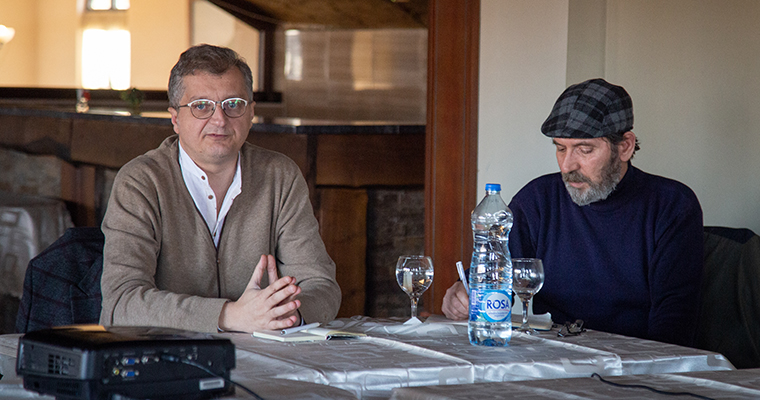
At the beginning of 2001, the Government of Serbia and Federal Government established a Coordination Body for Preševo, Bujanovac and Medveđa. In an attempt to resolve the crisis by political means, in early 2001, the representative of the government and Albanian community began negotiations with mediation of NATO, UN and OSCE. The result of these negotiations was gradual entry of the Yugoslav Army into the GSZ and simultaneous demilitarisation and disbandment of OVPMB. The GSZ was formally revoked by a subsequent agreement. In 2002, the Federal Assembly passed a Law on Amnesty for all former members of OVPMB.
The topics of the second session were the Končulj Agreement and the Amnesty Law, discussed by Shaip Kamberi, president of the Municipality of Bujanovac and a member of the delegation which negotiated the Agreement. The Končulj Agreement is a statement of demilitarisation signed by OVPBM leaders in the village of Končulj in 2001, while the Amnesty Law was passed in 2002, granting amnesty to all persons suspected, under the Criminal Law of the Federal Republic of Yugoslavia, to have committed the crimes of terrorism and associating for the purpose of hostile activities in the Preševo Valley in the course of 2001.
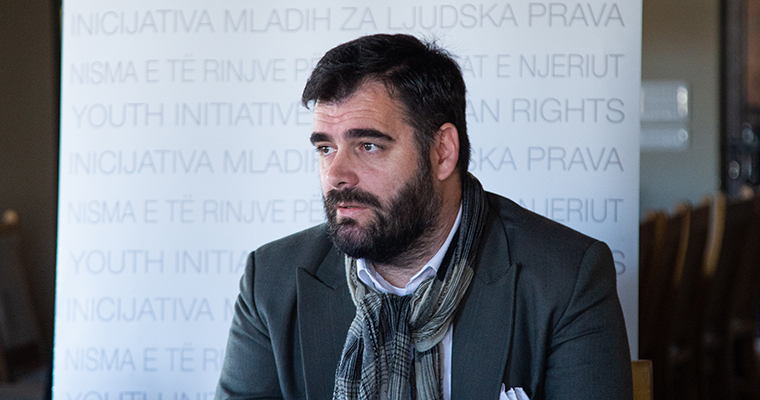
On the second day of the workshop, we talked with Ragmi Mustafa, president of the Natioinal Council of Albanians in Serbia, who discussed the problems of the Albanian minority in the south of Serbia today. The problems which continue to burden the Albanian minority are related to the use of mother tongue, reflected in complicated processes of obtaining identification documents; school textbooks in Albanian, that is, lack thereof; memorialisation, reflected in the example of a monument erected in memory of OVPBM members (who were granted amnesty under the 2002 Law) in November 2012, which was removed by the Gendermerie at the reqest of the state of Serbia in January 2013. The adoption of the Law on War Memorials in 2018 meant that a series of monuments dedicated to OVPBM soldiers has become disputable, with frequent announcements of their removal. It is important to stress that at the moment, there is no memorialisation for forcible disappearances and murders of Serbian and Albanian civilians, victims of the 2000-2001 conflicts.
A special segment of the workshop was a discussion about the population census in the Preševo Valley, projected for 2021. This topic was discussed by Fatmir Hasani, MP from the Party for Democratic Action and Ragmi Mustafa, president of the National Council of Albanians in Serbia. Fatmir Hasani stressed that he hoped for a better atmosphere for the next census in 2021, in spite of the fact that the problems remained the same and that Albanian parties were now going to the polls under the joint platform. Let us remind you, after a series of forcible relocations from the Preševo Valley, the census in the three municipalities in the Preševo Valley was held for the first time after the conflict in 2002. In 2011, the census was boycotted again by the Albanian political parties because of, as Hasani stressed, the impossibility to be organised in Albanian and by a 3-member teams, one from the Serb community and two from the Albanian community in the municipalities where Albanians are the majority. On the other hand, Mustafa is more doubtful regarding Hasani’s statement that “there is a mood for participating in the 2021 census”, because of the problems bothering members of the Albanian community today. One such problem is the passivisation of residence, reflected in the tentative official use of Albanian language for the Albanians from these municipalities due to the complicated and long procedure of registration of changes of residence or registration in the birth registers.
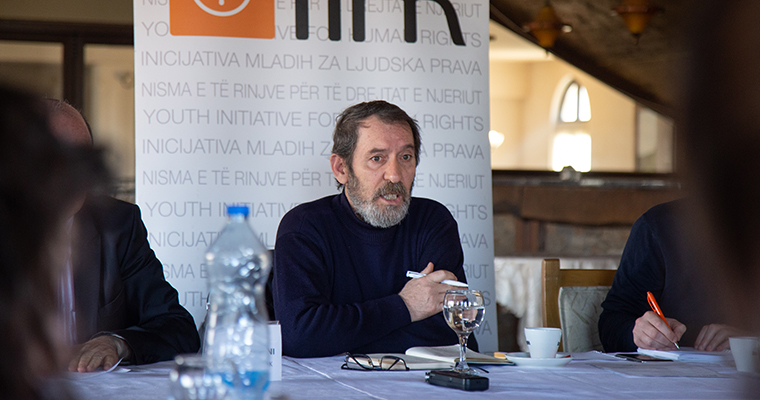
According to the 2015 commission composed of international and domestic experts, which was determining population in the municipalities of Preševo and Bujanovac, after the Albanians boycotted the 2011 census, it is estimated that 67,000 inhabitants live in the two municipalities, specifically around 38,300 in the municipality of Bujanovac and 29,600 in the municipality of Preševo. At the same time, according to municipal electoral committees, a total of 79,688 voters have the vote in the municipalities of Preševo and Bujanovac.
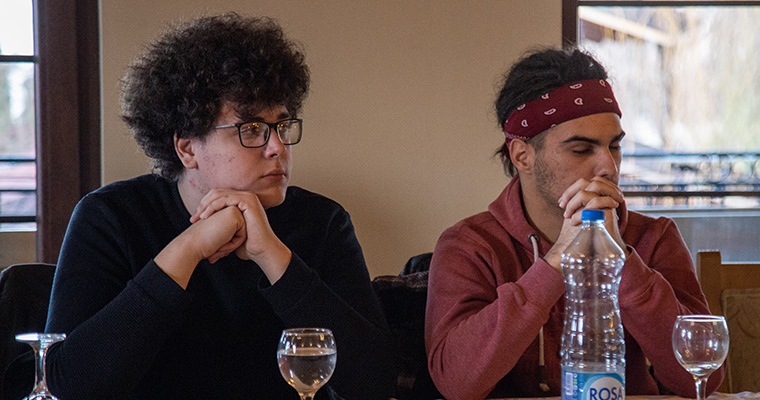
Besides the fact that no census was carried out in the municipalities of Preševo and Bujanovac in 2011 and that the population is estimated on the internationally established parameters, the difference between the number of inhabitants and the number of voters in the voters’ list, is also affected by large percentage of inhabitants of these municipalities actually living abroad, but are still registered in the voters’ lists.

